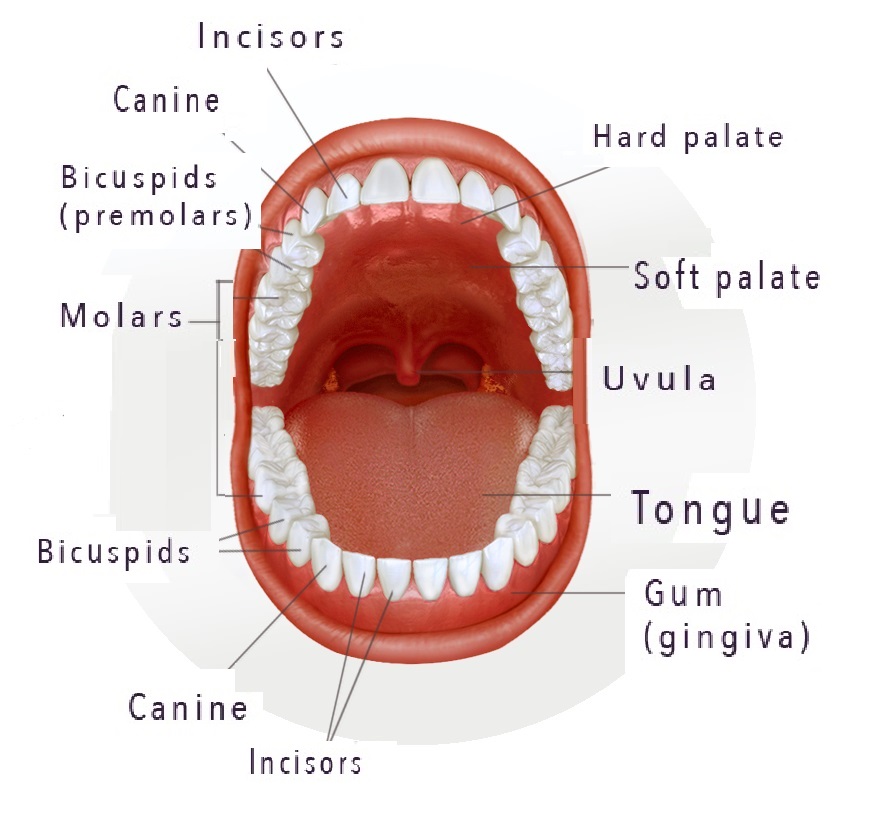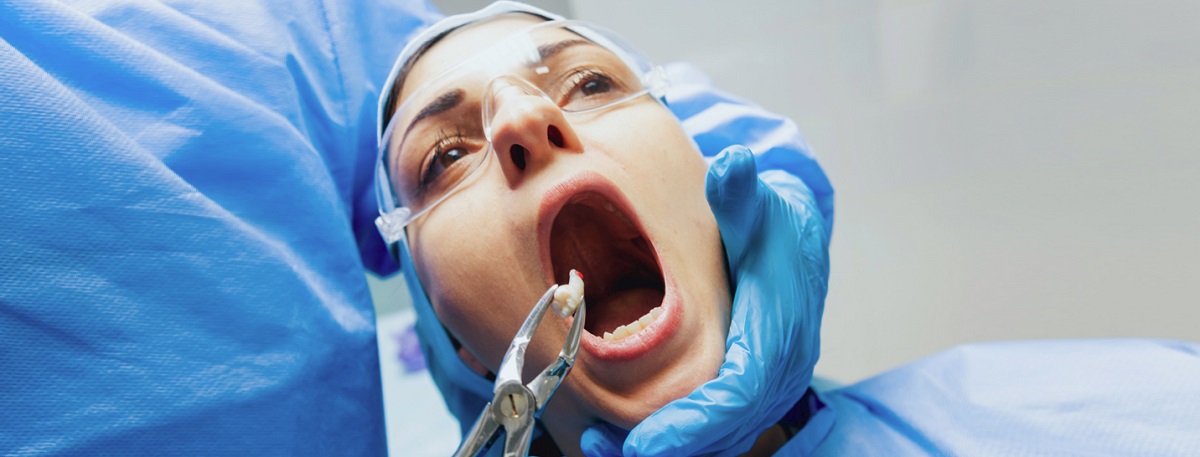Wisdom teeth are one of the human body’s least wise attributes. They’re a throw-back to the Stone Age when humans needed the extra teeth to masticate raw meat and chew course foods. These teeth are no longer necessary and sometimes they don’t even fit into our mouths properly. Some evolutionary biologists believe we are gradually losing these extra teeth and, as evidence of this, point to the fact that wisdom teeth only appear in about sixty-five percent of Canadians.
What Are Wisdom Teeth?
Wisdom teeth are molars which erupt late in adolescence in whatever space is available at the rear of your mouth. Some individuals may not develop wisdom teeth at all, while others may get two molars. This is entirely normal. The problems happens when these big teeth erupt in small mouths. That’s when dental surgeons are called upon to remove the emerging molars before they can cause any real problems.
Pain in the back of your jaw behind the molars can be one of the first signs that you have wisdom teeth ‘erupting’ in your mouth. Symptoms including swelling and tenderness upon biting and occasionally, the torsion will cause suffers to experience painful headaches or ear aches.

What problems result from impacted wisdom teeth?
An impacted tooth can lead to an infection called pericoronitis. If untreated, this infection can spread to the throat or into the neck. In the very worst cases, oral infections even spread to the rest of the body via the bloodstream. Such severe infections require a hospital stay and surgery.
Impacted teeth can also get cavities both above and below the gum line. A truly terrible situation arises when an impacted tooth pushes onto the neighboring molar. This can lead to tooth movement, decay, or gum disease. It also can change the way a person’s teeth come together, which can affect how they eat and how they speak. Occasionally, impacted teeth can cause cysts or other growths in the jaw.
Cost of Wisdom Tooth Removal in Toronto?
The cost of wisdom tooth removal at Archer Dental in Toronto can range from $200 to $800 per tooth, depending on the complexity of the extraction. The average is about $350 per tooth. Standard wisdom tooth removal can be less costly, while impacted wisdom teeth may require more complex procedures, resulting in higher fees.
Three main factors affecting cost are, 1) complexity, as simple extractions of fully erupted wisdom teeth are less expensive than surgically removing impacted or partially impacted teeth. 2) Anesthesia: how much local sedation, or general sedation is required. 3) Dental insurance can help reduce the out-of-pocket costs of wisdom tooth removal.
At what age do wisdom teeth come in?
Wisdom teeth, or third molars, typically start erupting in young peoples’ mouths when they are between the ages of 17 and 25 years old. They are the last set of adult teeth to erupt, and are often called third molars because they occupy the rear quarter of your mouth. Like everything, the timeline can vary, with some people experiencing eruptions as early as 13 years old, and others not seeing them emerge until their late twenties. Amazingly, because the surgery can be scheduled in advance, there occurs a Wisdom Tooth Removal Season at Archer Dental, as most extractions occur in the springtime after students finish their final exams and before they begin their summer jobs.
When should wisdom teeth be removed?
Dentists advise patients to have their wisdom teeth surgically removed if:
- They’re impacted, meaning the molars are blocked as they push through the gums into subject’s mouth,
- The wisdom teeth have erupted or will erupt at the wrong angle,
- The subject’s mouth is too small and there’s no room for any more teeth,
- The subject already has cavities in the back of the mouth and is unable to brush or floss their wisdom teeth properly due to their location.
Most people’s mouths only have room for 28 teeth, which means there’s little to no room for those extra 4 teeth to grow in. Some people will feel the uncomfortable pressure and throbbing of their wisdom teeth even before they start erupting into the mouths.
Below, and to the right, is an Archer Dental patient with a perfect smile. All of his teeth are clean and straight and his mouth is big enough to comfortably accommodate all four wisdom teeth. This is what a full mouth looks like.
Archer Dental is fully equipped to do any major dental procedures on location, including wisdom teeth. We even have laughing gas!
Explaining Wisdom Tooth Extraction
If the teeth have already erupted through the gums, they can be removed fairly easily (as in a standard tooth removal). If the teeth are impacted however, an incision needs to be made through the surface of the gum above the tooth. The bone covering the tooth needs to be removed and then the tooth itself is extracted. Occasionally, dentists will cut the tooth into multiple pieces to avoid inadvertently damaging bone, nerves, or other delicate tissues. Once the teeth have been extracted, your dentist will stitch the gums back up using dissolvable stitches.
What to Eat after Wisdom Teeth Removal?
Archer Dental recommends patients eat soft but nutritious foods in the days immediately after their wisdom teeth have been removed. Meals should be viscous, or at least easy to chew. The food selected should also have lots of vitamins, minerals, and protein to assist healing. Creamy soups, chowders and stews are recommended. Solid foods like mashed potatoes and gravy, scrambled eggs and avocado salads are also good choices. The best rule is to avoid any food that requires serious chewing.
Wisdom Tooth Removal in Toronto
Wisdom teeth extraction is done by oral surgeons at all three Archer Dental locations in Toronto; dentists at Archer Dental Baby Point, Archer Dental Little Italy and Archer Dental Rosedale all busily perform this operation during Wisdom Tooth Removal Season which happens in the late spring of every school year. The procedure takes about forty minutes on average, but the actual length of the operation depends on what type of surgery is required.


